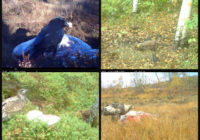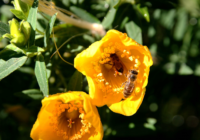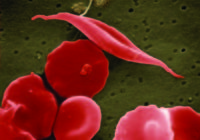The effect of moose harvest remains on natural ecosystems

Out in remote Norwegian forests, moose hunters traditionally dress their kills in the field, leaving behind internal organs like liver, lungs, and intestines. These gut piles, which will be eaten by a variety of scavengers, effectively act as human food subsidies to wild species. What impact – be it positive or negative – this has on the natural forest ecosystem remains unclear. In this guest blog Gjermund Gomo discusses his new research, recently published in BMC Ecology, that uncovers who exactly is benefiting from this hunter’s gift.







